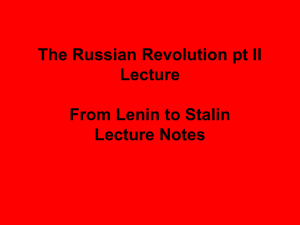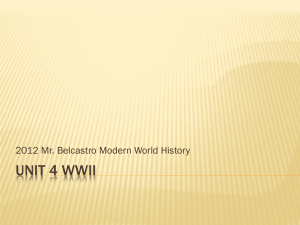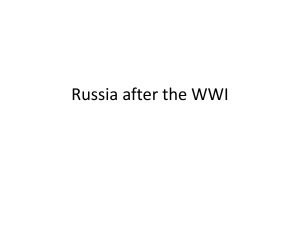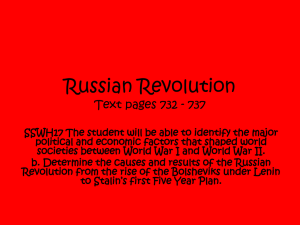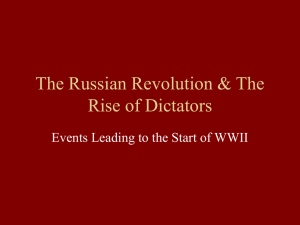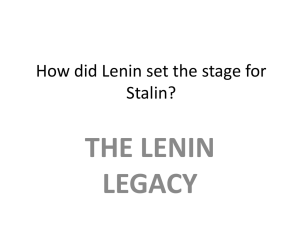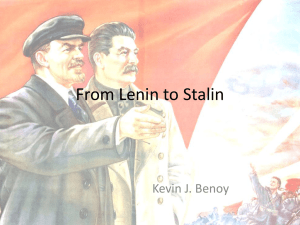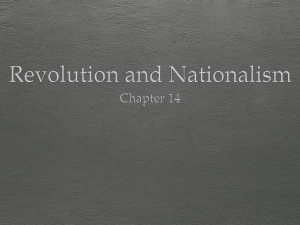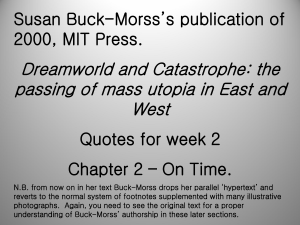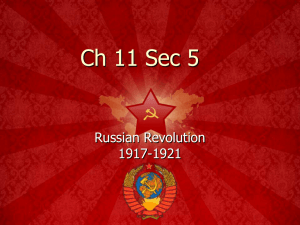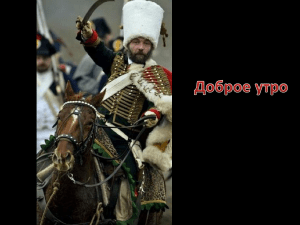Lenin`s Death - Kingussie High School Social Subjects
advertisement
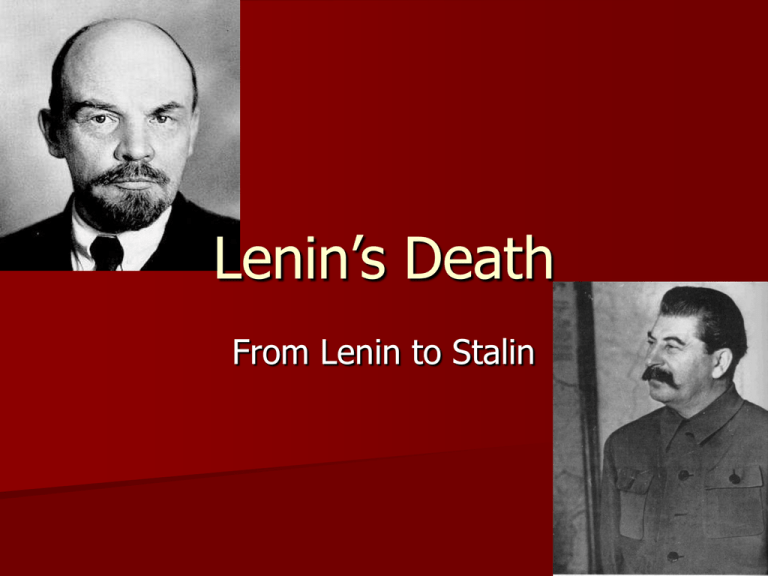
Lenin’s Death From Lenin to Stalin Lenin’s relationship with Stalin Stalin became General Secretary of the Communist Party in 1922 and had a lot of influence – in the same year Lenin had a stroke which left him disabled. Lenin wrote a testament to be read after his death that warned Stalin had become too powerful and that he should not become his successor Lenin disagreed with the Stalin on the issue of the Soviet Republics Lenin mounted an investigation in to the way Stalin had been running Georgia It seems likely that Lenin was trying to crush Stalin’s political ambitions, but before this could happen he died Lenin’s Funeral Lenin died on 21 January 1924 There was national mourning and millions filed past his body which lay in state at the House of Trade Unions Trotsky had been unwell and was in the south of the country having a rest holiday Stalin contacted Trotsky and told him not to rush back as he would not make the funeral in time… Stalin exploited the funeral and was one of the main pallbearers Stalin made a moving speech at the funeral and set himself up as the man who would carry on the work of Lenin The Cult of Lenin This had begun after the assassination attempt in 1918 Under pressure from Stalin, Lenin’s body was embalmed and his tomb turned into a shrine (this went against Lenin’s last wishes) Lenin’s brain was sliced into 300,000 pieces and stored so that future scientists could discover the secrets of his genius Petrograd was renamed Leningrad Memorabilia was produced and streets renamed Trotsky and Lenin’s wife were appalled by these acts, but speaking out would make them appear disrespectful to the masses Lenin in the Mausoleum Lenin’s legacy Lenin created the Bolsheviks and a new brand of Marxism His steely determination led him to believe a coup in October 1917 was probable He was a good orator and excellent writer He was diplomatic and could bring party members behind even unpopular ideas He worked 16 hour days, and often neglected his private life – the Revolution was his life Lenin’s legacy He oversaw the Treaty of Brest-Litowsk He brutally closed down the Constituent Assembly and dissolved democracy Arguably he instigated the Civil War He crushed the Church and political rivals He was flexible, and when War Communism did not work he re-introduced some limited capitalism: NEP Millions of citizens lost their homes and lives through famine, war and persecution What next? It is almost certain that Lenin had high hopes that Trotsky would succeed him – his values and talents were clearly recognised by the ailing dictator; they were working together to try and bring more democracy to the USSR Lenin also realised that Bukharin was a popular figure among the Russians Lenin was suspicious of Stalin’s motives and tried to curb his power Stalin manoeuvred himself into the role of Lenin’s keeper after his sudden death – the next 5 years would see a grim power struggle to fill the vacuum left by Lenin
